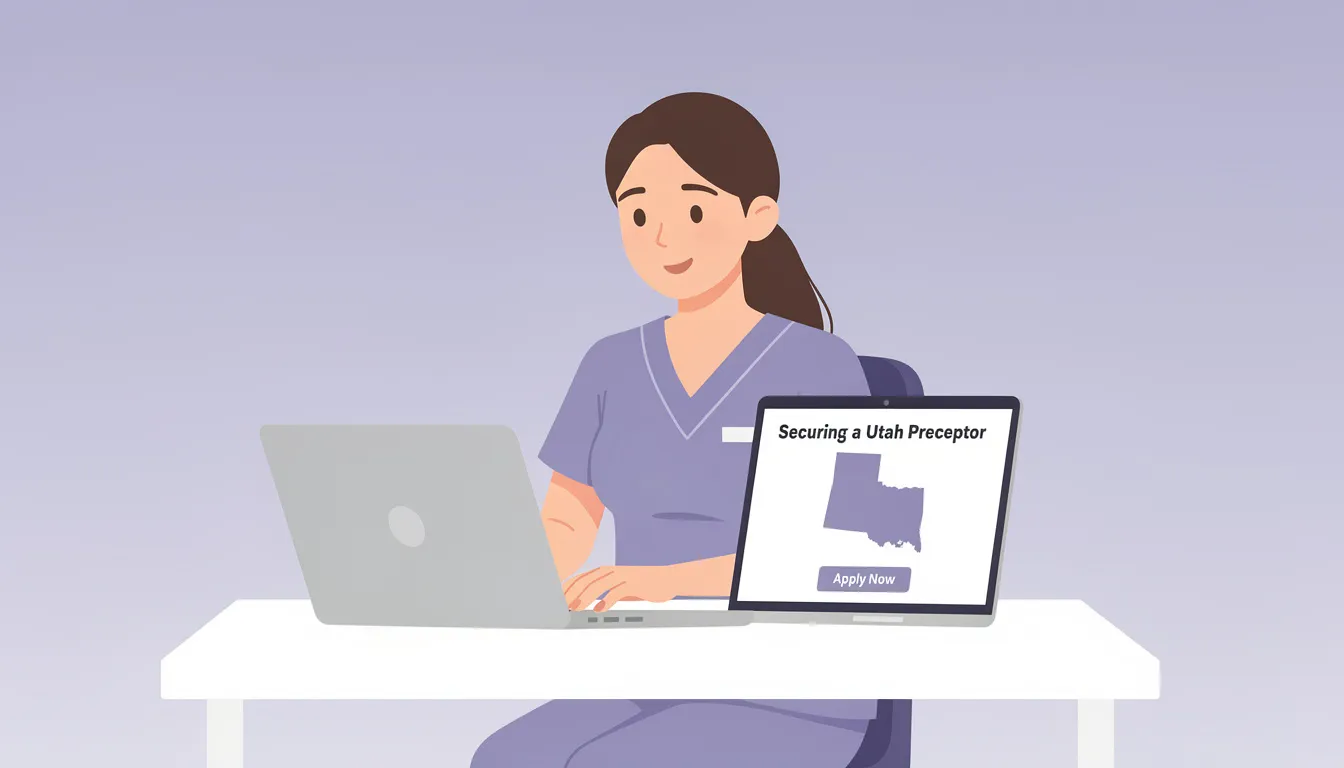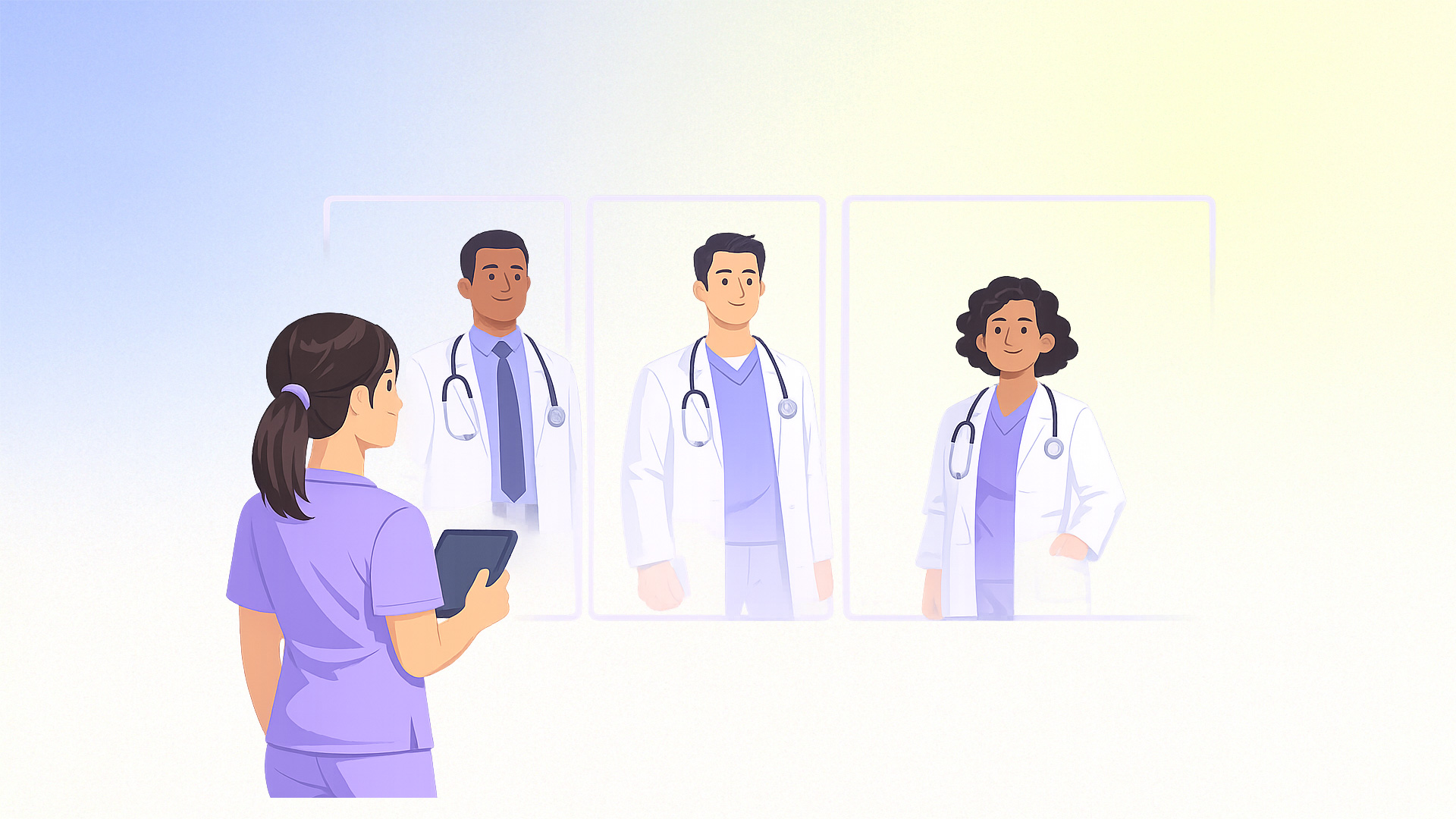TL;DR: Key Takeaways for Finding NP Preceptors in Indianapolis
- Competition is fierce: Multiple nursing programs compete for limited clinical placements with Indianapolis healthcare systems like IU Health, Community Health Network, and Eskenazi Health, making it challenging to find NP preceptors in Indianapolis through traditional methods alone.
- Target the right contacts: Reach out to office managers and clinical coordinators rather than individual providers, as they handle student placement logistics and can provide immediate information about availability and requirements for clinical rotations.
- Leverage university and professional networks: Use resources from IUSON, Butler University, and Marian University, plus connect with Indianapolis chapters of ISNA and CAPNI for networking opportunities that can lead to preceptor connections.
- Consider professional matching services when traditional methods fail: If you've been searching for months without success or face tight deadlines, preceptor matching services can connect you directly with verified Indianapolis preceptors who actively accept nurse practitioner students.
- Plan for the unexpected: Have backup options ready since preceptor cancellations can happen, and remember that delayed graduation costs more than investing in professional placement assistance when you need to secure clinical placements quickly.
You've made it through months of rigorous coursework, late-night study sessions, and challenging exams in your nurse practitioner program. Now comes what many students describe as the most stressful part of their education: finding clinical rotations in Indianapolis. If you're reading this at 2 AM while scrolling through your phone, desperately searching "how to find np preceptors in Indianapolis," you're not alone.
Most students struggle to find NP preceptors in Indianapolis because the city's healthcare landscape presents unique challenges. While Indianapolis boasts major healthcare systems like IU Health, Community Health Network, and Eskenazi Health, the reality is that there's an overwhelming demand for clinical placements compared to available preceptors. The same issues affecting the nationwide nurse practitioner preceptor shortage are amplified in Indianapolis, where multiple nursing programs compete for limited spots.
Here's what's happening in Indianapolis healthcare systems that makes clinical rotations so challenging to secure:
- Limited preceptors across specialties: Family practice, primary care, and women's health providers are particularly stretched thin, with many already committed to students from Indiana University School of Nursing, Butler University, and Marian University programs.
- Complex affiliation agreements: Major health systems require extensive paperwork and institutional partnerships that can take months to establish, creating bottlenecks for students who need placements quickly.
- Geographic spread: Indianapolis's sprawling metropolitan area means students often need to travel significant distances between clinical sites, limiting their options based on transportation and scheduling constraints.
- Preceptor burnout: Many experienced nurse practitioners in Indianapolis have stepped back from mentoring due to time constraints and productivity demands, contributing to the shortage of available clinical placements.
The clinical rotation crisis in Indianapolis healthcare systems stems from a fundamental mismatch between supply and demand. As nursing programs continue to expand to meet growing healthcare needs, the infrastructure to support clinical education hasn't kept pace. This leaves students like you caught in the middle, trying to balance full-time work, family responsibilities, and coursework while desperately searching for that preceptor who can guide your transition into advanced practice.
If you're feeling overwhelmed by the search process, you're not alone—and you don't have to figure this out entirely on your own. Creating a free account with NPHub gives you immediate access to a curated network of Indianapolis preceptors who are actively accepting students, complete with verified credentials and streamlined onboarding processes. Instead of sending dozens of cold emails and waiting weeks for responses that may never come, you can connect with available preceptors who understand your timeline and are committed to providing quality clinical experiences.
Indianapolis' Landscape for Nurse Practitioner Students
Before you start reaching out to potential preceptors, understanding Indianapolis' healthcare ecosystem will help you target your search more effectively. The city's medical landscape is dominated by several major health systems, each with different approaches to accepting nurse practitioner students for clinical rotations.
Major Healthcare Systems Accepting Students
Indianapolis operates around five primary healthcare networks that regularly work with NP students:
- IU Health System
- Community Health Network
- Eskenazi Health System
- Franciscan Health Indianapolis
- Riley Hospital for Children
Each of these systems has different requirements for clinical placements, ranging from formal affiliation agreements to individual site approvals. Some are more accessible to students from smaller programs, while others primarily work with established nursing schools that have existing partnerships.
Practical Outreach Strategy
When contacting healthcare facilities, consider reaching out to office managers or clinical coordinators rather than directly emailing providers. These administrative professionals often handle student placement requests and can provide clearer information about current availability and requirements. They're also more likely to respond promptly since managing clinical rotations may be part of their regular responsibilities.
Office managers can tell you whether the practice currently accepts students, what their application process involves, and when the best time to reapply might be if they're currently full.
Additionally, some healthcare systems have centralized student placement coordinators who manage requests across multiple locations. Identifying these key contacts can save you time and ensure your application reaches the right person who can actually approve clinical placements.
How to Find NP Preceptors in Indianapolis
Start with University Resources
Your NP program likely has more resources than initially apparent. Most universities maintain networks of clinical contacts that aren't publicly advertised.
- IUSON clinical placement policies — Review their clinical coordinator contacts and past placement lists
- Butler University connections — Their nursing program may share resources with current students
- Marian University networking opportunities — Alumni networks often provide the strongest leads
Actionable Tip: When emailing clinical coordinators, include your specific rotation requirements, preferred dates, and ask about any upcoming preceptor orientations where you might connect with potential mentors.
Target Indianapolis-Specific Organizations
Professional nursing organizations offer networking opportunities that many students overlook but can be highly effective for finding preceptors.
- Indiana State Nurses Association (ISNA)
- Coalition of Advanced Practice Nurses of Indiana (CAPNI)
- Indianapolis Medical Society (occasionally welcomes nursing students at events)
When to Consider Preceptor Matching Services
Sometimes the traditional approach to finding clinical placements isn't enough. If you recognize any of these signs, it may be time to consider professional assistance with your preceptor search.
Signs You Need Professional Help Finding Clinical Placements
You've been searching for more than six weeks without securing a confirmed placement, your rotation start date is approaching within 30 days, or you've received multiple rejections from Indianapolis healthcare facilities. Additionally, if you're balancing full-time work while trying to coordinate clinical rotations, or if your program offers limited placement support, professional services can provide the structure and connections you need.
How Preceptor Matching Services Work in Indianapolis
Preceptor matching services maintain networks of vetted healthcare professionals who actively accept nurse practitioner students. Rather than cold-calling clinics or waiting for email responses, these services connect you directly with preceptors who understand your clinical needs and timeline. They handle the initial screening, coordinate scheduling, and often assist with paperwork and affiliation agreements.
Cost-Benefit Analysis for Graduating on Time
While preceptor matching services require an investment, consider the cost of delayed graduation. Sitting out a semester means additional tuition, extended student loan payments, and delayed entry into your nursing career. Most importantly, it means postponing your ability to provide patient care and start earning as a practicing nurse practitioner.
Finding the right preceptor shouldn't derail your education timeline or add unnecessary stress to an already demanding program. Professional matching services eliminate the uncertainty and time-consuming outreach that many students face in Indianapolis's competitive clinical placement market.
If you're ready to secure your clinical rotations efficiently and focus your energy on learning rather than searching, creating a free NPHub account connects you with Indianapolis preceptors who are committed to mentoring the next generation of nurse practitioners. Your clinical experience should enhance your education, not become an obstacle to completing it.
Frequently Asked Questions
1. How long should I expect to spend searching for NP preceptors in Indianapolis before finding a placement?
Most students spend months actively searching for clinical placements in Indianapolis, though this can vary significantly based on your specialty and flexibility with scheduling. Family practice and primary care rotations tend to be easier to secure than specialized areas like pediatrics or women's health.
2. Do all Indianapolis healthcare systems require my school to have an existing affiliation agreement?
Not all healthcare facilities require formal affiliation agreements. However, many larger systems, such as IU Health, do. Smaller private practices and some urgent care facilities may be willing to work with individual students through direct agreements. Always ask about their specific requirements when making initial contact, as this can help you prioritize which facilities to approach first.
3. What's the difference between reaching out to office managers versus contacting nurse practitioners directly?
Office managers and clinical coordinators typically handle student placement logistics and can provide immediate information about availability and requirements. They're often more responsive since managing clinical rotations may be part of their regular duties. Direct contact with individual preceptors can work, but many prefer that initial inquiries go through their administrative staff.
4. Is it worth paying for a preceptor matching service if my program offers some placement support?
Even if your program provides some assistance, professional matching services can be valuable if you're facing tight deadlines, need specialized placements, or have already tried traditional methods without success. Consider the cost against potential delays in graduation, which could mean additional tuition and postponed career entry.
5. What should I do if a confirmed preceptor cancels my clinical rotation at the last minute?
Preceptor cancellations can happen due to scheduling conflicts, staffing changes, or unexpected circumstances. Have a backup plan ready and maintain relationships with multiple potential sites. If you're working with a matching service, they typically provide replacement options. Contact your program's clinical coordinator immediately to discuss alternatives and timeline adjustments.
About the author
- NPHub Staff
At NPHub, we live and breathe clinical placements. Our team is made up of nurse practitioners, clinical coordinators, placement advisors, and former students who’ve been through the process themselves. We work directly with NP students across the country to help them secure high-quality preceptorships and graduate on time with confidence. - Last updated
September 17th, 2025 - Fact-checked by
NPHub Clinical Placement Experts & Student Support Team - Sources and references
- https://indymedicalsociety.org/
- https://capni.enpnetwork.com/
- https://indiananurses.nursingnetwork.com/
- https://nursing.iu.edu/index.html
- https://www.nphub.com/blog/np-preceptor-contact-strategy
- https://www.rileychildrens.org/
- https://www.franciscanhealth.org/healthcare-professionals/education/nurse-practitioner-np-rotations-indianapolis
- https://www.eskenazihealth.edu/locations/primary-care-sites
- https://www.ecommunity.com/careers/nursing/nursing-education/advanced-practice-provider-students
- https://iuhealth.org/professional-education/advanced-practice-providers
Find a preceptor who cares with NPHub
Book a rotation.webp)




.avif)



.webp)


.webp)



%20(3)%20(2).svg)
.webp)